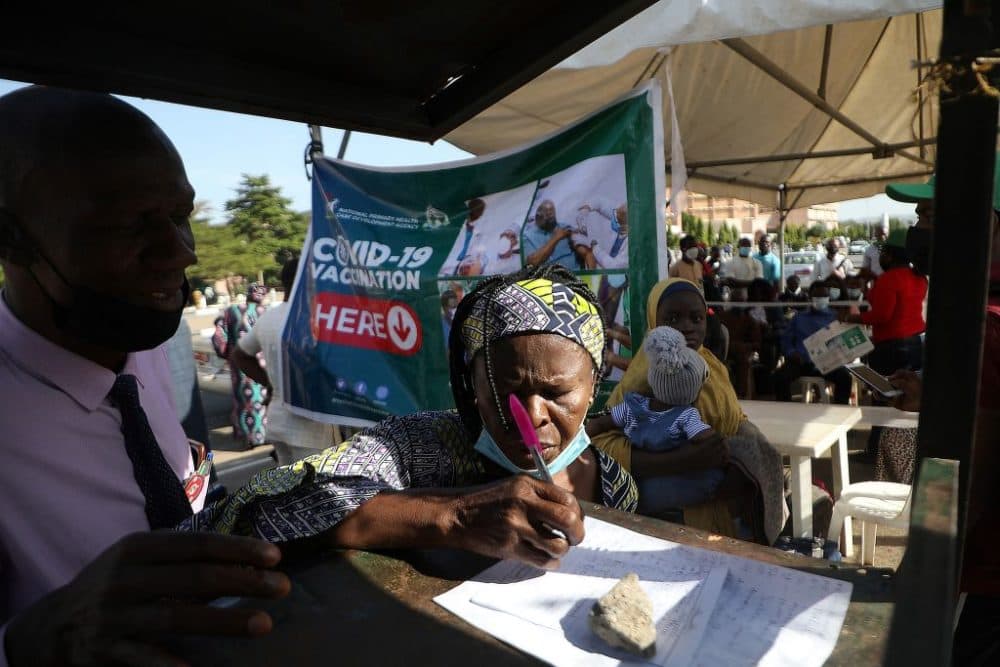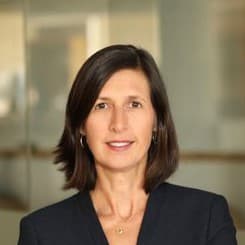Advertisement
Commentary
Vaccine equity isn’t just an ideal — it’s how we end the pandemic

When I was a young aid worker, I had a recurring nightmare. In the dream, a woman with a baby on her back is pounding on my door seeking refuge, but there are thousands of others behind her. I want to let her in to protect her, but I can’t give everyone behind her refuge too. My desire to help is palpable, but so, too, is my inaction — it haunts me. And it’s haunted me during the pandemic, when even now, thousands of people, as many as 10,000 around the world, are still dying from COVID-19 every day.
With effective and safe vaccines, the United States has the tools and resources to help solve this crisis globally, but we are plagued by an instinct to save ourselves.
This instinct fuels the pandemic’s flames today, as we fail to make vaccines available to everyone, everywhere. Today, 70% of people in the U.S. have received at least one dose of a COVID-19 vaccine, but only 5% of people in low-income countries have had the same opportunity. And that’s how variants like delta and omicron are allowed to develop and keep moving the finish line.
As long as infection rates rage on in unvaccinated parts of the world, mutations will keep a cruel cycle of illness, death and economic suffering on repeat.
In my three decades of working in humanitarian aid and development, I have witnessed wide-spread and needless suffering. I can feel in my core, a desire to stop history from repeating itself. Thirty years ago, the disease and mass suffering was caused by HIV/AIDS.
[T]he United States has the tools and resources to help solve this crisis globally, but we are plagued by an instinct to save ourselves.
In 1994, I was on one of the first commercial flights to Kigali, the capital of Rwanda, following that country’s genocide. I was 28 years old. During the early months of my work, I trekked through narrow paths across the country, carefully avoiding landmines, with a translator, Jonathan Gatera. He was eager to help his country come back from the evil it had witnessed, but he was ill with what was soon to be full-blown AIDS.
Jonathan and I attended mass funerals every weekend, where hundreds of bodies that had been dumped in mass graves were exhumed and given proper burials. We spoke to countless survivors who shared harrowing stories of terrible trauma — of abuse, violence, persecution.
Jonathan had four young children. During the time we worked together, AIDS began to ravage his body — each day the blisters on his skin left stains on his well pressed shirts. Jonathan’s illness was not my first intimate encounter with AIDS. Years earlier, during my time in Lesotho as a Peace Corps volunteer, young people and countless women who were the sole providers of their households had fallen prey to the disease that was not yet truly understood.
Advertisement
Now, more than 20 million people in Africa receive HIV/AIDS treatment. We are capable of solving seemingly insurmountable global health crisis when we have the political will. Thanks to the global response, HIV/AIDS is a chronic disease — not a death sentence. Achieving this reality was a long and complex process, and it too faces setbacks in the shadow of COVID. It required challenging pharmaceutical companies on intellectual property rights to make antiretroviral drugs and other treatments available, while also making local health services available to extremely hard to reach communities.
As long as infection rates rage on in unvaccinated parts of the world, mutations will keep us on a cruel cycle of illness, death and economic suffering on repeat.
And eventually, the U.S. government played a critical role as President George W. Bush established PEPFAR, the President’s Emergency Plan for AIDS Relief, an $85 billion investment in the global HIV/AIDS response. Since its inception in 2003, the program has saved more than 20 million lives in more than 50 countries.
Today, we are facing a similar challenge with the same foes. Despite receiving billions of taxpayer dollars to help develop the highly effective COVID-19 vaccines, a couple of private corporations hold monopoly control over the life-saving technologies everyone in the world needs. They control how vaccines are made and sold, and at what price. And while they can’t produce enough doses for everyone, they are unwilling to share the recipe to protect their already astronomical profits.
We know that viruses mutate as they replicate, they are clever and opportunistic. We know that prevention and preparedness is so much less costly in human and financial terms than relying on treatments or cures. We also know what is possible with political will, sound policy, resources and science. But are we applying these lessons today?
My life’s journey has brought me to Oxfam, where we believe in a future that is equal, and one that in the face of a global pandemic, must include access to lifesaving vaccines for all. The omicron variant must be the catalyst for President Biden and other world leaders to step in and end vaccine monopolies, support waiving intellectual property barriers, and mandate the sharing of vaccine technologies and know-how.
When the news is especially stark, I still dream about that mother and baby knocking at my door. It weighs on me, but it also drives me to keep working to help those I can and to challenge the often complex causes behind human suffering. Saving ourselves is not enough — and it won’t end the pandemic.
We must ensure that everyone, everywhere has the same access to lifesaving vaccines as we do here.
